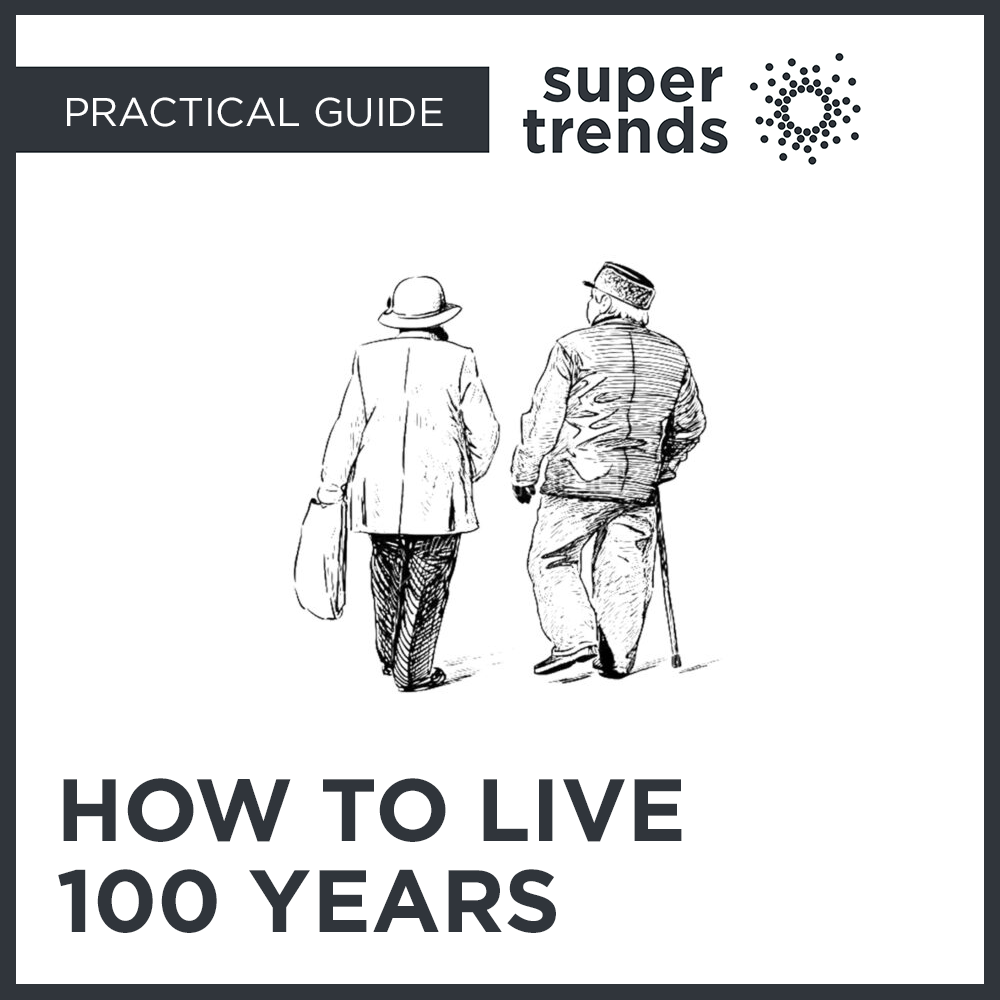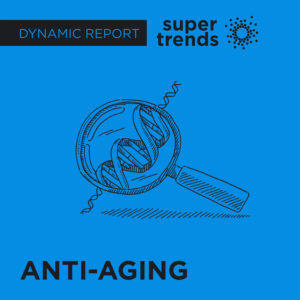How to live 100 years?
Most people consider people aged 60 and above to be ‘old’. This may well be a thing of the past. Our life expectancy already moved past 80 in many countries. Today, a 60-year-old healthy man or woman has an almost 50 percent chance of living to 90. Those who are in their 40s or 50s are just halfway through their lives. Do you have plans in place to safeguard your health in the second half of your life? Are you longevity-ready? We hope this publication, in the form of a practical guide, can answer your questions.
You should read this guide if:
- You want to live a long and healthy life.
- You want to avoid age-related diseases (heart disease, diabetes, cancer, dementia, etc.).
- You want to find various science-based anti-aging interventions for ordinary people in one place.
- You are a relatively healthy adult.
Many of the anti-aging approaches mentioned in this publication also help to prevent or manage conditions like obesity, type-2 diabetes, hypertension, etc. Individuals who already have chronic health conditions are advised to consult with their medical doctor before starting anything new.
Preface

In the Supertrends Anti-Aging Dynamic Report, we discussed the newest developments of extending lifespan and healthspan. This guide will tell you how we can implement the scientific breakthroughs in our daily life to live healthier longer.
1. What Aging Means to Us

If we are engaged in a struggle against aging, we need to understand what aging does to our body. Other than the gray hair and wrinkles, do you know that aging actually affects many of our organs and their functions?
2. Healthy Aging Through a Good Lifestyle

Chemical compounds, diets, physical training, and genetic engineering have all proven successful in extending lifespans and healthspans in animal species. Among these approaches, lifestyle factors are the first ones we can start to apply in real life. Supertrends has compared studies based on different protocols to ensure that the advice we give is reasonable enough for our readers to practice on a long-term basis.
3. Supplements - What to Believe?

Supplements account for a huge commercial business, quality assurance and clinical validation are often questionable, and any scientific discussion of their health benefits must necessarily be highly complex. We will walk you through what works and what does not in this chapter
4. Can Drugs Reverse or Delay Aging?

Although no anti-aging treatment has been approved by the FDA yet, more than 100 companies are working on anti-aging solutions. About 28 drugs are being tested in human trials or age-related diseases and two drugs directly targeting aging.
5. The Essential Role of Psychosocial Factors

The psychological dimensions of longevity are a unique feature of humans. Several psychological factors, such as cognition, personality, and well-being, have proven to be associated with longevity. You would not have guessed what personality can make you live longer.
6. How to Measure the Rate of Aging

If there was such a thing as an aging clock, we could predict the expected lifespan of each person based on individual parameters. Does such a clock really exist?
7. Are You Longevity-Ready?

If you are in your 40s, you may have around 50% chance of living to age 90. Have you taken action to ensure that you spend the last 20-30 years of your life healthily and happily? Find out what is on Supertrends’ longevity-ready list.




